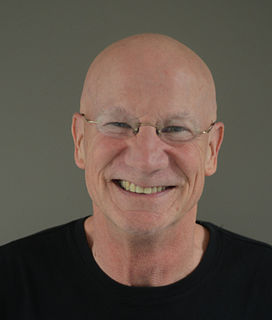A Quote by Christian Nestell Bovee
The questions most furiously discussed are those which have in them a basis of truth, and yet a large admixture of errors. We inconsiderately take hold of, and mistakingly support or oppose them, as either wholly true or wholly false.
Related Quotes
Progress is the exploration of our own error. Evolution is a consolidation of what have always begun as errors. And errors are of two kinds: errors that turn out to be true and errors that turn out to be false (which are most of them). But they both have the same character of being an imaginative speculation. I say all this because I want very much to talk about the human side of discovery and progress, and it seems to me terribly important to say this in an age in which most non-scientists are feeling a kind of loss of nerve.
It becomes all therefore who are friends of a Government based on free principles to reflect, that by denying the possibility of a system partly federal and partly consolidated, and who would convert ours into one either wholly federal or wholly consolidated, in neither of which forms have individual rights, public order, and external safety, been all duly maintained, they aim a deadly blow at the last hope of true liberty on the face of the Earth.
Everything that is thought and expressed in words is one-sided, only half the truth; it all lacks totality, completeness, unity. When the Illustrious Buddha taught about the world, he had to divide it into Samsara and Nirvana, illusion and truth, into suffering and salvation. One cannot do otherwise, there is no other method for those who teach. But the world itself, being in and around us, is never one-sided. Never is a man or a deed wholly Samsara or wholly Nirvana; never is a man wholly a saint or a sinner. This only seems so because we suffer the illusion that time is something real.
Isolating the student from large sections of human knowledge is not the basis of a Christian education. Rather it is giving him or her the framework for total truth, rooted in the Creator's existence and in the Bible's teaching, so that in each step of the formal learning process the student will understand what is true and what is false and why it is true or false.
Most persons think that a state in order to be happy ought to be large; but even if they are right, they have no idea of what is a large and what a small state.... To the size of states there is a limit, as there is to other things, plants, animals, implements; for none of these retain their natural power when they are too large or too small, but they either wholly lose their nature, or are spoiled.
We have hitherto considered only two possibilities: that the received opinion may be false, and some other opinion, consequently, true; or that, the received opinion being true, a conflict with the opposite error is essential to a clear apprehension and deep feeling of its truth. But there is a commoner case than either of these; when the conflicting doctrines, instead of being one true and the other false, share the truth between them.
There various news I heard of love and strife,Of peace and war, health, sickness, death, and life,Of loss and gain, of famine and of store,Of storms at sea, and travels on the shore,Of prodigies, and portents seen in air,Of fires and plagues, and stars with blazing hair,Of turns of fortune, changes in the state,The fall of favourites, projects of the great,Of aid mismanagements, taxations new:All neither wholly false, nor wholly true.


































